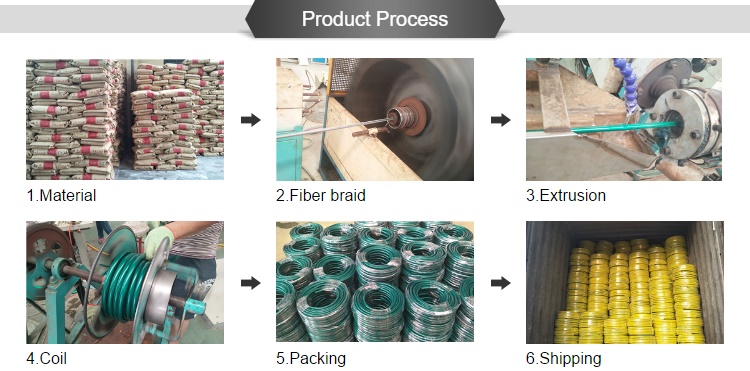High-Quality PVC Steel Wire Hose Manufacturing Facility for Durable and Reliable Solutions
PVC Steel Wire Hose Factory A Comprehensive Overview
In the modern industrial landscape, the demand for versatile and durable hoses has surged, driven by a myriad of applications across sectors such as agriculture, construction, and manufacturing. Among the various types of hoses available, PVC steel wire hoses have emerged as a preferred choice due to their remarkable strength, flexibility, and resistance to harsh conditions. This article delves into the intricacies of a PVC steel wire hose factory, highlighting its production processes, applications, and benefits.
Understanding PVC Steel Wire Hoses
PVC (Polyvinyl Chloride) is a widely utilized plastic that is known for its durability, low cost, and resistance to chemical corrosion. When combined with steel wire reinforcement, it produces a hose that can handle high pressures and extreme conditions, making it suitable for various challenging environments. The steel wire not only enhances the hose's strength but also provides it with a coiling ability, preventing kinking and tangling during use.
Production Process in a PVC Steel Wire Hose Factory
The manufacturing process in a PVC steel wire hose factory typically involves several key stages.
1. Material Selection High-quality PVC resin is chosen based on the desired specifications. Plasticizers and stabilizers are added to the resin to enhance flexibility and durability.
2. Extrusion The first step in the production line is the extrusion of the PVC material into a hollow tube. This is done using an extrusion machine, which heats the PVC until it becomes malleable and then shapes it into the desired diameter and thickness.
3. Steel Wire Reinforcement After the initial extrusion, the hose is reinforced with steel wire. This can be done by wrapping the wire around the hose during the extrusion process or by placing it in layers. The arrangement and amount of wire depend on the specific pressure ratings required for the finished product.
4. Cooling and Setting The newly formed hose is then cooled, usually in a water bath, to set its shape and strength.
pvc steel wire hose factory

5. Quality Control Quality assurance is paramount in any factory setting. Each batch of hoses undergoes rigorous testing to ensure they meet industry standards. This includes pressure tests, flexibility tests, and checks for any imperfections.
6. Cutting and Packaging Once the hoses pass quality checks, they are cut to the required lengths, coiled, and packaged for shipping. Proper packaging is essential to prevent damage during transport.
Applications of PVC Steel Wire Hoses
The versatility of PVC steel wire hoses makes them suitable for a wide range of applications.
- Agriculture Farmers use these hoses for irrigation systems, as they can withstand varying pressures and are resistant to UV rays and chemical fertilizers. - Construction In construction sites, they are often employed for transporting water, concrete, and other materials, thanks to their strength and flexibility. - Industrial Use They are favored in factories for pneumatic tools and machines, where high pressure and durability are essential.
Advantages of PVC Steel Wire Hoses
The advantages of PVC steel wire hoses are numerous. Their high tensile strength ensures they can handle demanding tasks without bursting. The presence of steel wire means that these hoses can be used in high-pressure settings without fear of kinking, which is a common issue with standard rubber hoses. Additionally, their resistance to weather conditions and chemicals makes them a reliable choice for both indoor and outdoor applications.
Conclusion
In conclusion, a PVC steel wire hose factory plays a crucial role in the supply chain of industrial materials. By employing advanced manufacturing techniques and adhering to stringent quality standards, these factories produce hoses that meet the diverse needs of various sectors. As industries continue to evolve, the demand for durable and efficient hoses will only grow, affirming the significance of PVC steel wire hoses in today's marketplace.
-
Top Quality Oxy Acetylene Hoses for Sale Fit for Welding DemandsNewsJul.28,2025
-
The Future of Pneumatic Air Tubes in IndustryNewsJul.28,2025
-
Superior and Reliable LPG Hose Pipe Solutions for Every NeedNewsJul.28,2025
-
Exceptionally Durable and Versatile Premium Braided PVC TubingNewsJul.28,2025
-
Best Adapters for Connecting Garden Hose to PVC Pipe ConnectionsNewsJul.28,2025
-
The Essential Role of LPG Hoses in Safe and Efficient Gas DistributionNewsJul.16,2025














